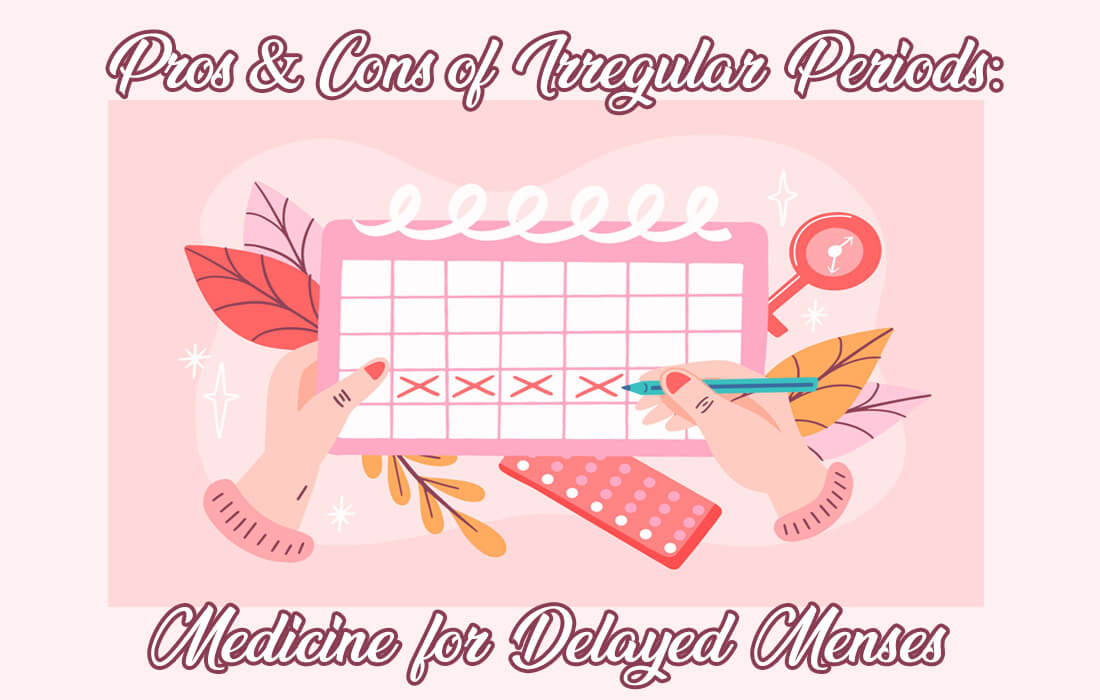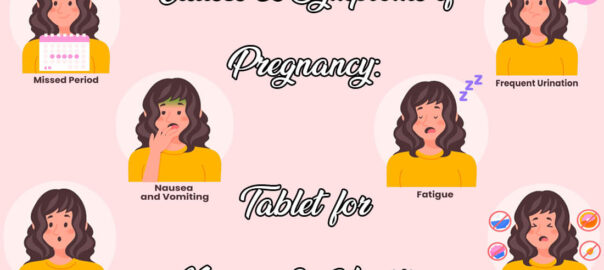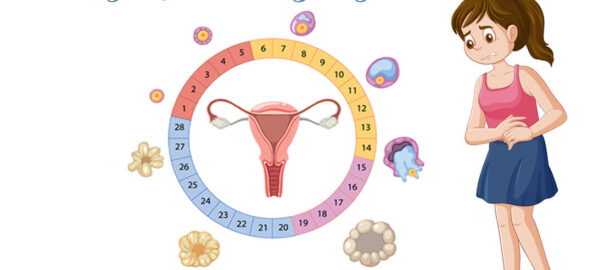
In the era of women’s health, delayed menstruation represents a pivotal moment that can bring both relief and concern to women. On one hand, when a woman’s period is late, it often raises the possibility of pregnancy, which can relieve those actively trying to conceive. In such cases, it can signify that conception may have occurred, bringing the hope of starting or expanding a family. On the other hand, it can be a source of deep concern, igniting worries about pregnancy when unplanned or raising questions about underlying health issues. In this comprehensive article, we embark on a journey to thoroughly explore the pros and cons of late periods and necessary medicine for delayed menses, shedding light on the various factors contributing to this phenomenon and how it can affect women’s lives.
Understanding Delayed Menstruation
Menstruation is a natural and vital aspect of a woman’s reproductive health. It usually occurs once a month, and the regularity of this cycle is essential for tracking overall well-being. However, there are times when menstruation doesn’t follow its typical schedule, causing concern for many women. Understanding delayed menstruation is crucial for women’s reproductive health. Delayed menstruation, commonly referred to as a late period, can be influenced by various factors, both positive and negative.
- Normal Menstrual Cycle: A normal menstrual cycle typically lasts 28 days, although it can range from 21 to 35 days. The process is counted from the first day of one period to the first day of the next.
- Causes of Delay: Delayed menstruation can have various reasons, including pregnancy, stress, hormonal imbalances, weight fluctuations, medications, excessive exercise, and approaching menopause. Each of these factors can influence the timing of a woman’s menstrual cycle.
- Sign of Pregnancy: One of the most common and important causes of delayed menstruation is pregnancy. When a woman becomes pregnant, her body often stops menstruating as a natural response to support the developing pregnancy.
- Health Concerns: Delayed menstrual cycles can indicate underlying health issues like PCOS, thyroid disorders, or hormone imbalances. These conditions can affect the regularity of menstrual cycles and may require medication for delayed periods. Ignoring these concerns and attributing the delay to stress or lifestyle factors can lead to more significant health problems in the long run.
Pros of Delayed Menstruation
For many women, the menstrual cycle can be unpredictable, leading to occasional delays in the onset of menstruation. While this may raise anxiety and uncertainty, there are certain benefits associated with delayed menstruation that are worth considering. Here are some advantages, and it’s essential to understand these aspects.
1. Pregnancy Confirmation
- One of the most significant pros of delayed menstruation is that it can serve as an indicator of pregnancy. When a woman misses her period, it often prompts her to consider the possibility of being pregnant. This delay can be a natural sign of conception, allowing women to take necessary steps, such as a pregnancy test, to confirm their pregnancy.
2. Reduced Menstrual Discomfort
- For some women, delayed menstruation may provide temporary relief from menstrual discomforts such as cramps, bloating, and mood swings. Although the relief is usually short-lived, it can offer a brief respite from the usual pains associated with periods.
3. Psychological Relief
- Delayed menstruation can also bring psychological relief to women who are not yet ready to conceive. It offers a reprieve from menstruation’s emotional and physical demands, providing time to prepare for potential pregnancy and parenthood.
4. Lifestyle Flexibility
- When menstruation is delayed, women may enjoy greater flexibility in their daily lives. They can engage in activities they might otherwise avoid during their menstrual cycle, such as swimming or strenuous workouts, without concerns about discomfort.
Overall, the advantages of delayed menstruation contribute to an enhanced quality of life. Whether through relief from discomfort, psychological respite, or increased flexibility, delayed menstruation can positively impact a woman’s overall well-being and sense of control over her reproductive health.
Cons of Delayed Menstruation
It also comes with its own set of disadvantages and challenges. It’s crucial to be aware of these aspects for a comprehensive understanding of the impact of delayed menstruation:
1. Anxiety and Stress
- One of the most significant cons of delayed menstruation is the anxiety and stress it can cause. Women often worry about the reasons behind the delay, including the possibility of pregnancy, health issues, or hormonal imbalances. This anxiety can negatively impact their emotional well-being.
2. Disruption of Daily Life
- While some women may appreciate the flexibility of delayed menstruation, it can disrupt the daily routines of others. Irregular cycles can make planning activities, vacations, or social events challenging, causing inconvenience and frustration.
3. Difficulty in Tracking Fertility
- Delayed menstruation can strain relationships, particularly for couples trying to conceive. Irregular periods make it harder to predict the fertile window accurately, potentially prolonging the time it takes to achieve pregnancy. It can lead to disappointment and frustration, affecting the emotional well-being of both partners.
4. Missed Birth Control Timing
- Delayed menstruation can lead to missed doses or decreased contraceptive effectiveness for women using birth control methods that rely on a regular menstrual cycle. It increases the risk of unintended pregnancy.
5. Hormonal Imbalance:
- The chronic or frequent delayed menstruation may be indicative of hormonal imbalances. Hormonal irregularities can impact overall health and may require medicine for delayed menstruation.
While delayed menstruation can offer certain advantages, it can also bring about concerns related to pregnancy, emotional well-being, underlying health conditions, routine disruptions, and hormonal imbalances. Understanding both the pros and cons of delayed menstruation is essential for informed decision-making and proactive management of one’s reproductive health.
Conclusion
Delayed menstruation is common in a woman’s life and can have positive and negative implications. While it may relieve menstrual discomfort or be an early indicator of pregnancy, it can also lead to anxiety, stress, and health concerns. Women must be aware of the common causes of delayed periods and seek medicine for delayed menses if the delay persists or is accompanied by troubling symptoms. Being informed about the pros and cons of this phenomenon empowers women to make informed decisions about their reproductive health and overall well-being.










